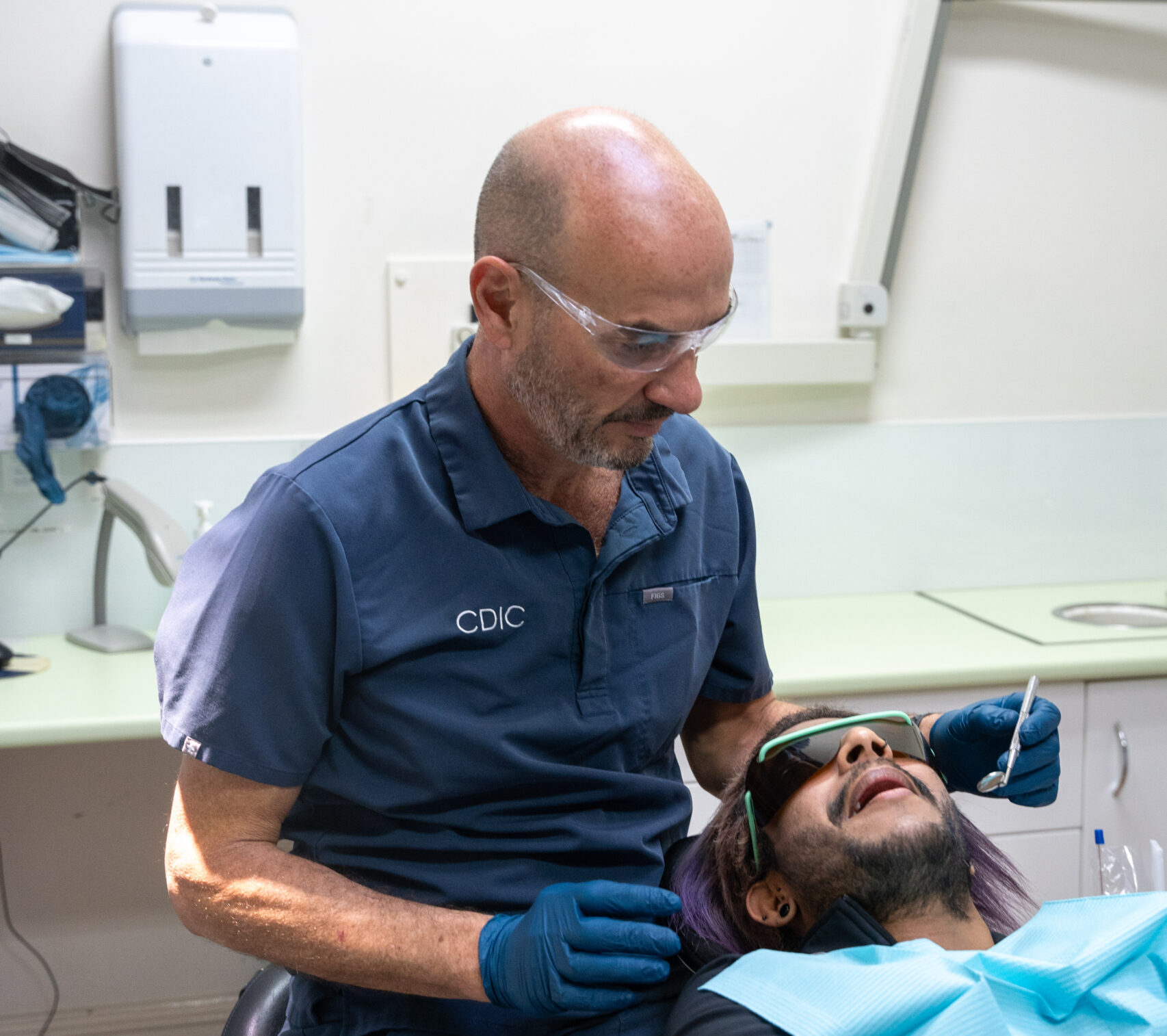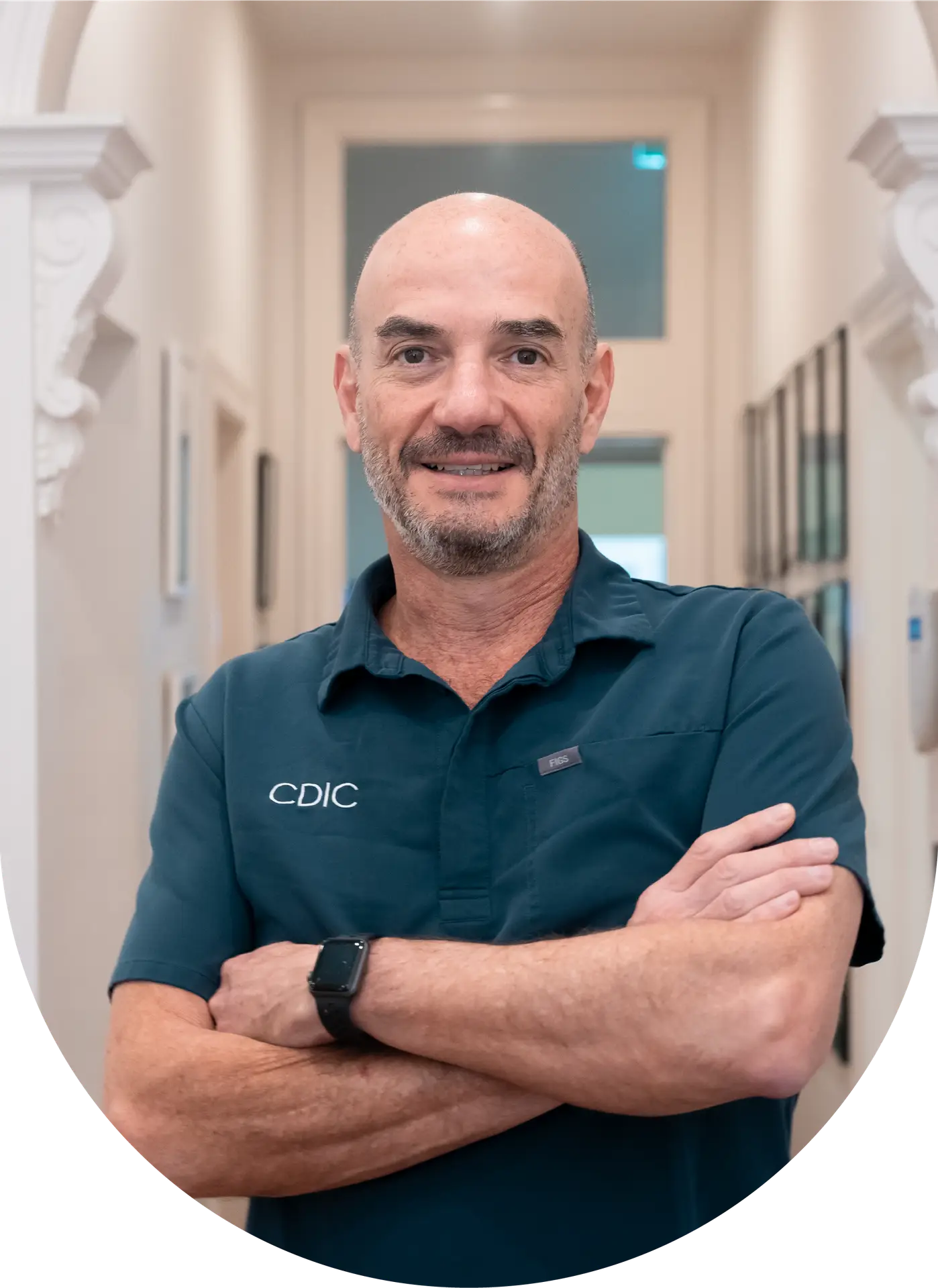Did you know that oral or dental issues could be the hidden cause of your snoring and sleep troubles? Treat the problems behind disruptions to your sleep and enjoy more peace while you rest.

Snoring may be an indication that you have Obstructive Sleep Apnoea (OSA), a condition where the airway is compromised during sleep. Symptoms of sleep apnoea include excessive daytime sleepiness, high blood pressure, and an increased risk of cardiovascular disease and stroke.
Before beginning any treatment, suspected OSA sufferers must have an evaluation from a respiratory or sleep physician to determine whether treatment is necessary. From there, our team at CDIC can help to treat the issue, relieve any discomfort, and avoid detrimental health consequences.

While sleep apnoea and snoring cannot be readily cured, managing them can help significantly reduce the frequency of symptoms, leading to more restful sleep and overall better systemic health. At CDIC, we treat sleep apnoea and snoring using a mandibular advancement splint. A Mandibular Advancement Splint or MAS can be used for mild to moderate OSA cases. This is a custom-made device for each patient that incrementally brings the lower jaw forward to help keep the airway open during sleep. In some cases, a ‘full mouth dental rehabilitation’ restoring the vertical dimension of the jaws can also help.
Each splint is designed and tailored based on scanning impressions of the patient’s jaws. Unfortunately, treating OSA is not always possible at the dentist. If your condition is severe, you may require more extensive sleep apnoea therapy, which should be recommended or provided by a trained sleep physician whom we will be happy to recommend.
Treating your sleep apnoea and snoring with mandibular advancement can make a positive difference in your everyday life.
1. Impressions
At an initial appointment, we take multiple pictures and use intra-oral scans of your teeth to create computerised 3D images of your upper and lower jaws. These images are used to tailor the advancement splint to your unique mouth profile.
2. Fitting
Once the splint is fabricated, we place it into your mouth to check that it accurately fits, and make any adjustments required to ensure it will work effectively.
3. Review
Patients attend regular appointments to ensure the splint is working properly in moving the jaw, and we make any required adjustments to the treatment plan.
Our general dental services are designed to restore the health and longevity of your teeth, and improve your overall quality of life. With expertise in a variety of areas, we are well-equipped to provide relief and give you more comfort during your rest.
We welcome all new patients from across Melbourne looking for the highest standard of care. Book an obligation-free consultation today to explore our snoring and sleep apnoea solutions.

As CDIC’s leading Dental Surgeon, Dr Hillel New has been providing exceptional dental care for over 34 years, building a reputation for providing quality, pain-free treatments in cosmetic and implant dentistry. Dr New’s expertise sees him regularly called on to identify and troubleshoot problems many people experience with their dental treatments.
His treatment philosophy centres around a commitment to evidence-based dentistry, and he believes in effective communication as the key to treatment success and long-term relationships with his patients.
With over three decades of experience, Dr New has seen it all and is passionate about coming up with the perfect solution for every patient. Here are just a few of the happy smiles he’s helped create.
Check out our range of teeth replacement options.
Signs of sleep apnoea include snoring loudly, gasping or choking during sleep, and feeling very sleepy during the day. Other signs include waking up with a dry mouth, trouble focusing, or changes in mood. If your partner notices you stop breathing at night or if you wake up often, these could be signs too. A sleep study is ultimately required for an accurate OSDSA diagnosis and treatment recommendations.
Yes, maintaining a healthy weight can prevent pressure on the airway, and sleeping on your side instead of your back can keep the airway open. Avoiding alcohol and sedatives before bedtime is important, as they can relax throat muscles and increase snoring. Establishing a regular sleep routine and making sure you get enough rest can also help. Finally, using a humidifier in the bedroom can reduce nasal congestion and improve airflow.
Sleeping on your back can worsen snoring because gravity causes the tongue and throat tissues to block the airway. This can lead to more snoring and sleep apnoea episodes. On the other hand, sleeping on your side helps keep the airway open and reduces snoring and sleep apnoea.
Mon: 8.30 – 17.30
Tue: 8.30 – 17.30
Wed: 8.30 – 17.30
Thu: 8.30 – 17:30
Fri: 8.30 – 17:00
Sat: closed
Sun: closed
© 2025 CDIC | Disclaimer | CCTV Policy| Privacy Policy
Website developed by Media Exchange